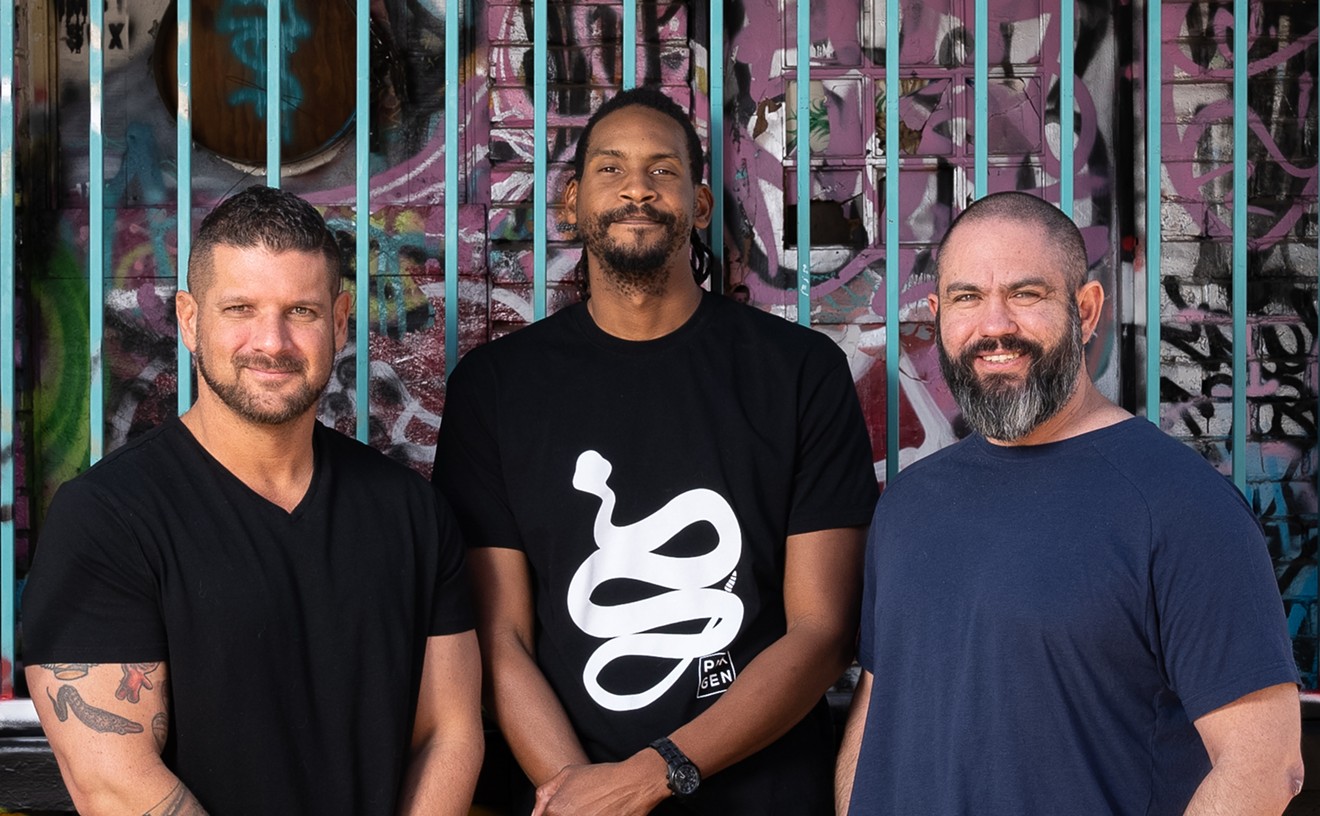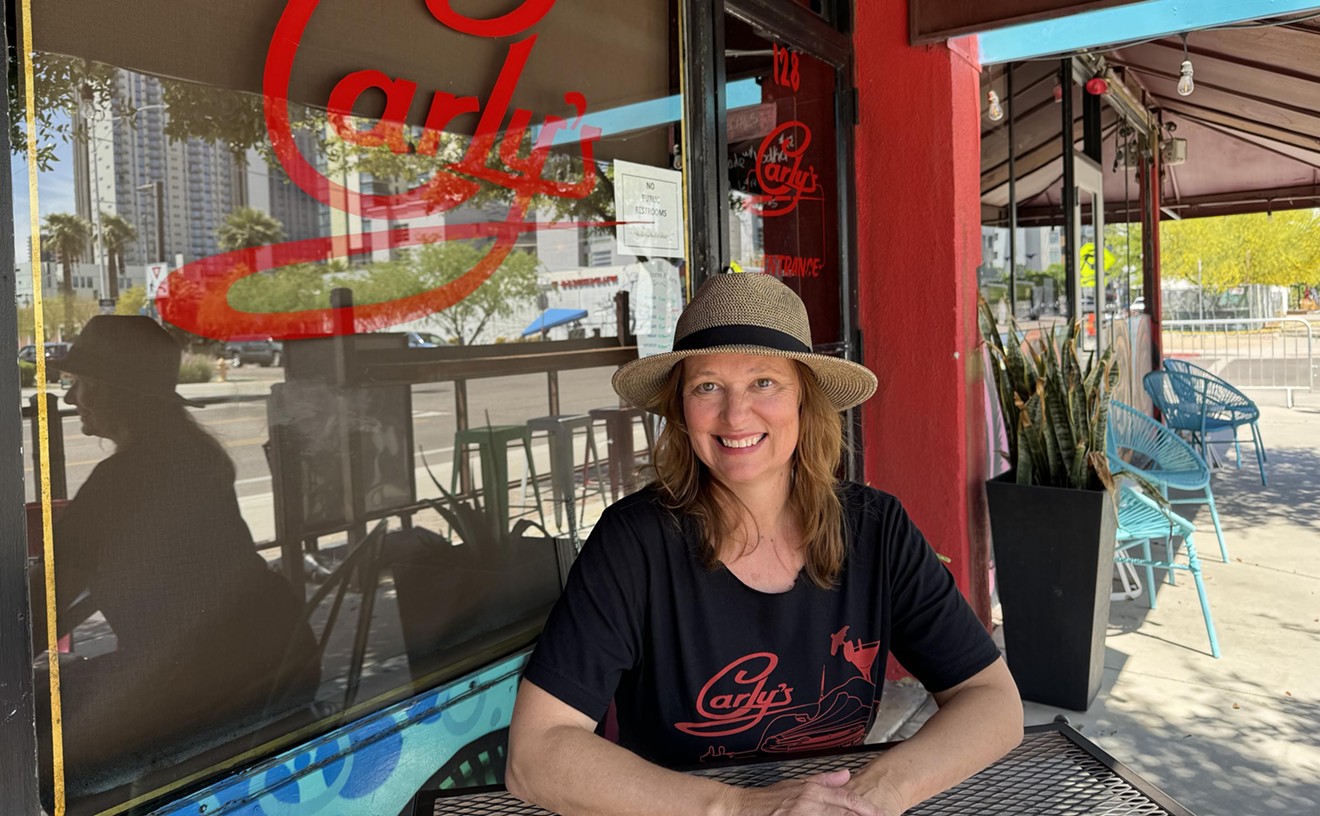Halfway through a recent meal at the Brooklyn Cafe, I turned to my guest and asked, "Is this food as good as I think it is?"
I hadn't been expecting greatness. The Brooklyn Cafe is the new name of a restaurant previously known as Voltaire, which had been in the Valley doing the same thing year in and year out for more than 20 years with a predictable menu of French-inspired classics such as beef bourguignon, oysters Rockefeller, and duck à l'orange. "Organic" and "free-range" weren't part of the lexicon, and preparations emphasized culinary fundamentals and a deft touch by the saucier. The impending food revolution had not even started to gain momentum; Voltaire chugged along serving well-prepared, if not innovative, food to a loyal customer base. Time, on that sleepy block of McDonald Drive in Scottsdale, stood still.
But everywhere else, times changed, tastes changed, and nowhere do loyal customers live forever. Chef and proprietor David Antonelli decided that a reboot was in order. With some subtle changes in décor and a name change as a nod to his East Coast heritage, The Brooklyn Cafe was born.
And though the food is almost universally delicious and impeccably prepared, you should be forewarned: This is the Brooklyn of your grandparents, not the Beastie Boys. But that's not a bad thing, because the Brooklyn Cafe executes on many of the details that elude all but the most seasoned industry veterans.
Gone is the poetry on the walls, and the dining room is brighter now, booths have been added, and there are a few kitschy nods to the New York subway system. It's also surgically clean; the bathrooms may lack a trendy communal sink or fancy fixtures, but I dare you to find a restaurant that has been in the same place for 20 years and still looks as if it has been cleaned from top to bottom every day. It's spotless inside. Although it lacks the modernity of many newer restaurants, the timeless food outshines the windowless classic setting.
Service is decidedly old school: You will be greeted by a maitre d' (Antonelli's father), older and distinguished, casually — but flawlessly — dressed. (Twenty years ago, I'm sure, he wore a necktie.) If the weather is cold, he will offer to take your coat and, with clock-like precision, will check on your table once each person has had his or her first bite. Salads will be served on ice-cold plates and entrées on steaming-hot plates — no exceptions. Bread, from a bakery in New York, will be brought to your table only once it has been heated in the oven. If, by chance, there is a child in your party, the staff preemptively will offer to make any desired accommodations and if that child, as in my son's case, elects to order a bowl of onion soup, the maître d' will make a point of gracefully informing him that the soup is very, very hot (which it was each time I ordered it).
And that soup is so rich, densely packed with French bread that soaks up the labor-intensive veal stock surrounded by Gruyère cheese, that you'll wonder why you ever wasted the calories ordering it somewhere else. Oysters Rockefeller, each bivalve almost as large as your hand, defies tradition with the addition of heavy cream and is a lavish way to start your meal. Escargot, swimming in butter, garlic and Pernod, are tender, not chewy. Sopping up the leftover butter with a piece of crusty bread is one of life's great pleasures; impending coronary blockage never tasted so good.
When you taste the beef bourguignon, you'll wonder why it has all but disappeared from modern menus. Antonelli's version, made with beef short ribs, tender pearl onions, and a heavily reduced red wine sauce, is rich and satisfying. Veal blanquette, a featured special that is made with veal cheeks, continues the theme of classic cuisine prepared to an exacting standard: traditional preparations, subtle flavors, and time intensive sauces. And each entrée comes with a side, be it puréed broccoli, McClendon Farms kale, or luxuriously creamy mashed potatoes.
The kitchen has tried to introduce lighter fare to the menu with a rotating list of fresh fish. On one visit, it was monkfish, and Dover sole, flown in from Holland, is served every Tuesday. And Antonelli continues to leverage his connections to Brooklyn to find new purveyors for meats and fish.
He says he has to appeal to a new generation, and though he reinvented Voltaire as The Brooklyn Cafe, he didn't want to alienate his loyal clientele. Calf's liver and onions was a special each time I was there; when was the last time you ordered that? I chose not to, preferring my liver chopped and on a bagel. (Which, ironically, seems much more "Brooklyn" than this.) And Aunt Rose's Brooklyn Sunday Dinner is a new addition to the menu. One of the few menu changes — other than the deletions of rack of lamb and filet mignon — it's also the weakest link. The red sauce was in the classic "Italian gravy" style, but the pasta was overcooked and the sausage greasy and flavorless. In a follow-up conversation with the chef, I could sense he wishes he could have evolved the menu further without turning off longtime customers.
In a recent issue of Esquire, writer Josh Ozersky lamented that "no one is actually cooking" anymore, that food is "composed," not cooked. You have experienced this before, right? Whether it was a beautiful piece of raw hamachi, an architectural tower of simply prepared vegetables, or a naked crown of broccoli, a chef took the notion of "let the food speak for itself" too literally, as though it were nothing more than structural engineering, knife skills, and procurement.
The Brooklyn Cafe is the perfect counterpoint to Ozersky's assertion. No one in the kitchen is composing your plate with tweezers. It is food that's cooked, food that's prepared with techniques and skills developed over time, perfected with repetition and an unrelenting unwillingness to cave to the pressures of hipness.
In fact, the allure of The Brooklyn Cafe is that it offers a transformative experience based on attention to detail, culinary fundamentals, and a genuine desire to please. I can argue that many chefs can deftly sear a piece of A5 Wagyu but would be deep in the weeds executing any one of the five mother sauces, all of which Antonelli seemingly can make in his sleep.
Still, other than a slight change in décor and cute subway-inspired signage, I'm not sure what's "Brooklyn" about The Brooklyn Cafe. But that's neither here nor there. The name is meaningless, but the experience makes you wonder whether the evolution of fine dining over the past 20 years actually has made food any better. The Brooklyn Cafe will make you think twice.










